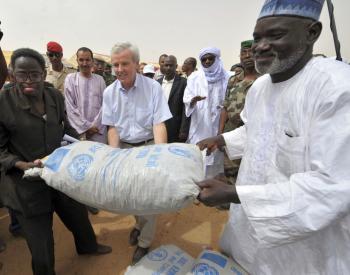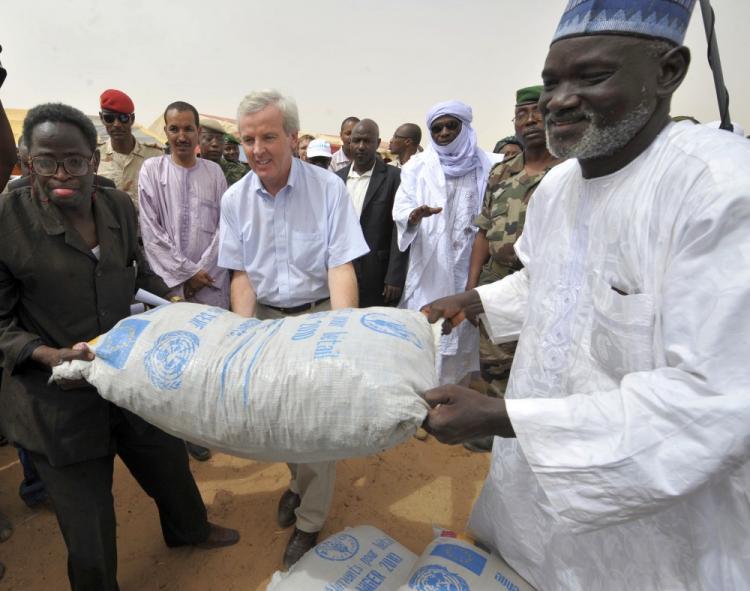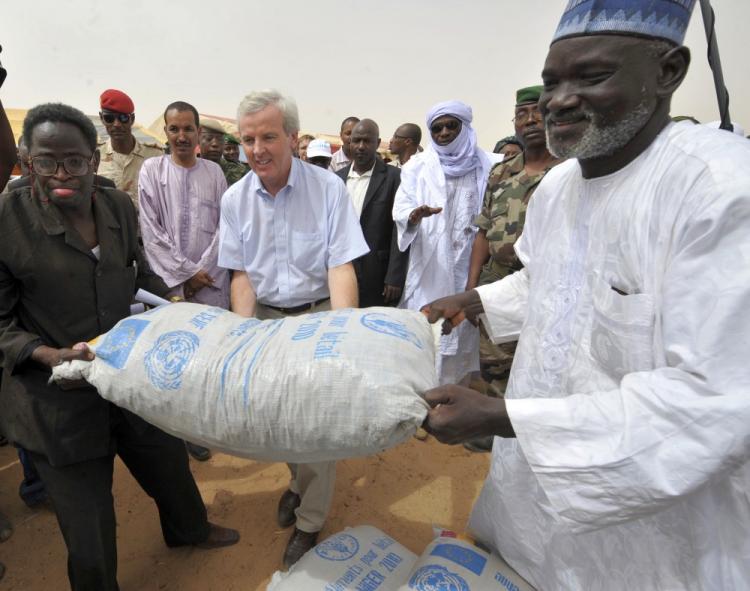Prolonged drought in Niger, the worst in memory, has pushed malnutrition in the country to a crisis point, according to the United Nations.
The landlocked African nation borders the Sahara desert and frequently cycles through periods of drought. It has been unable to recover from last year’s erratic rains that caused widespread crop failure and livestock deaths. There is hope for a good harvest, but until it comes, Nigerians face increasingly severe malnourishment, according to UNICEF.
As many as 8 million people need assistance, and 400,000 children are expected to suffer from severe malnourishment, according to UNICEF.
Health centers across the country are rapidly filling with malnourished infants and their anxious mothers, as many parents are running out of food stocks during the lean period before the harvest, according to UNICEF
Some villages have nearly nothing left to eat and people are reduced to foraging. One Niger woman Raya Sahi in a video interview with UNICEF said she and her seven children are surviving on the fruit and its leaves of one type of drought resistant wild plant.
The United Nations World Food Program (WFP) and the European Commission are upping food aid to the country. On Wednesday, the U.N. announced a WPF program to feed 670,000 children and the EC announced it will give $19 million for food security in the country.
The children will receive monthly rations of corn and soya from the WFP, which will also provide rations of enriched flour, sugar, and oil to some 4 million families.
Children under the age of two are at the highest risk of malnutrition and illness. For those critically in need of nutrition, UNICEF distributes a high-energy nut paste.
The current level of aid is not sufficient to meet the demand for food in the coming months.
“It is crucial that donors continue to come forward as soon as possible if we are to prevent the loss of a whole generation of children to malnutrition and food insecurity,” said WFP Regional Director Thomas Yanga, in the U.N. release.
The landlocked African nation borders the Sahara desert and frequently cycles through periods of drought. It has been unable to recover from last year’s erratic rains that caused widespread crop failure and livestock deaths. There is hope for a good harvest, but until it comes, Nigerians face increasingly severe malnourishment, according to UNICEF.
As many as 8 million people need assistance, and 400,000 children are expected to suffer from severe malnourishment, according to UNICEF.
Health centers across the country are rapidly filling with malnourished infants and their anxious mothers, as many parents are running out of food stocks during the lean period before the harvest, according to UNICEF
Some villages have nearly nothing left to eat and people are reduced to foraging. One Niger woman Raya Sahi in a video interview with UNICEF said she and her seven children are surviving on the fruit and its leaves of one type of drought resistant wild plant.
The United Nations World Food Program (WFP) and the European Commission are upping food aid to the country. On Wednesday, the U.N. announced a WPF program to feed 670,000 children and the EC announced it will give $19 million for food security in the country.
The children will receive monthly rations of corn and soya from the WFP, which will also provide rations of enriched flour, sugar, and oil to some 4 million families.
Children under the age of two are at the highest risk of malnutrition and illness. For those critically in need of nutrition, UNICEF distributes a high-energy nut paste.
The current level of aid is not sufficient to meet the demand for food in the coming months.
“It is crucial that donors continue to come forward as soon as possible if we are to prevent the loss of a whole generation of children to malnutrition and food insecurity,” said WFP Regional Director Thomas Yanga, in the U.N. release.





